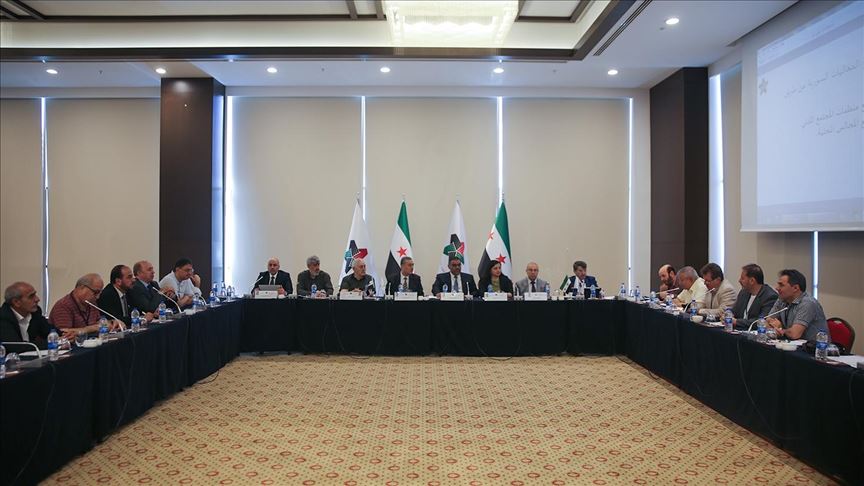Syrian opposition: we should freeze participation in Constitutional Committee
ISTANBUL, Turkey (North Press) – On Monday, Syrian political opposition figures said that the Syrian opposition delegation should freeze its participation in any upcoming discussions related to the Syrian Constitutional Committee, criticizing the use of the term “restorative justice” used by UN Special Envoy Geir Pedersen.
This came in response to statements by the opposition co-chair of the Constitutional Committee, Hadi Al-Bahra, who said that there is no alternative to achieving “transitional justice” to implement UN Security Council Resolution 2254.
Geir Pedersen angered the Syrian opposition during his Syria briefing at the UN Security Council in mid-December with his use of the term restorative justice in place of the term transitional justice.
Syrian opposition figures warned that this term means that the United Nations and the opposition give up the political transition through a transitional governing body with full powers, and that “restorative justice” implies that the political situation in Syria would be returned to its previous state.
Al-Bahra said that transitional justice is a basic condition that must be fulfilled in any political solution, including the political solution that implements Security Council Resolution 2254.
He pointed out that transitional justice begins with accountability, as this is the first commitment of the members of the Constitutional Committee within the delegation of the Syrian opposition and the negotiating body.
Early last week, Syrian activists and dissidents launched an online campaign through the petition platform Avaaz organization, to reject the term “restorative justice.”
Tariq al-Kurdi, a member of the Constitutional Committee for the opposition delegation, said that the term restorative justice was a translation mistake.
“The opposition delegation, since the first day of the opening session of the Constitutional Committee, has been talking about transitional justice, and one of our most important wishes is that the obstacles in the Security Council will be removed to refer the crimes in Syria to the Prosecutor of the International Criminal Court,” he added.
Constitutional Committee member Mazen Ghariba said that the civil society delegation issued a statement in which it clarified that it did not use the term restorative justice in any session of the Constitutional Committee.
“We asked Pedersen to correct this mistake, and to attach the correction statement to the briefing he gave to the Security Council so that it would be included in the files of this briefing,” Ghariba added.
Opposition Syrian human rights defenders stated that the inclusion of the term restorative justice in United Nations documents related to Syria negotiations essentially marks its endorsement within the mechanisms of a political solution that is being worked on under UN auspices.
A source from the Syrian opposition, who preferred not to be named, told North Press, “Good faith must be accompanied by action, especially those who have the power to make decisions or announce an actual position.”
He added, “In order for Mr. al-Bahra to prove his goodwill to the people, he must make a decision to withdraw from the committee, or to freeze their participation in it, and delete the term from the briefing document, as statements do not replace decisions in preserving rights.”
Syrian dissident Mamoun Abu Issa said in a statement to North Press that “if we go back to the foundations of transitional justice, we will see that it represents the prosecutions of the most responsible criminals, who are the highest ranking officers in the Syrian regime.”
He also added that the regime will obstruct material and moral reparations, the issuance of reports from fact-finding committees, and the dismantling of repressive state institutions, which are the security and judiciary agencies loyal to it, marking the failure to achieve any justice for Syrians, including transitional justice.”
“The next political solution is moving towards rehabilitating the regime, with or without Bashar Assad, and it is impossible for the coming regime to accept the foundations of transitional justice that we mentioned,” Abu Issa added.

